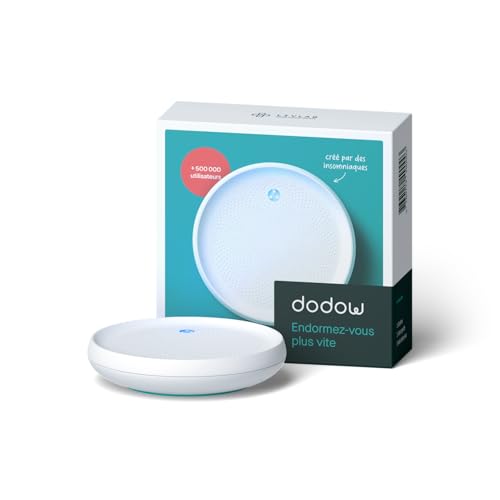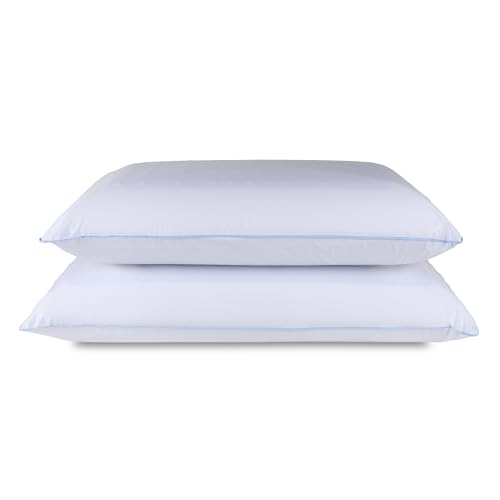Disclosure
This website is a participant in the Amazon Services LLC Associates Program, an affiliate advertising program designed to provide a means for us to earn fees by linking to Amazon.com and affiliated sites.
Introduction:
Yes, your work could be the very reason you’re not sleeping well—here’s what to do about it.
In today’s always-on culture, work doesn’t stop when you leave the office—or shut the laptop. Whether it’s replying to late-night emails, lying awake thinking about tomorrow’s deadlines, or juggling multiple shifts, many professionals are unknowingly sacrificing sleep at the altar of productivity. But poor sleep isn’t just a nuisance—it has real consequences on your mental clarity, mood, and long-term health.
🔹 You’re not alone: Over 35% of working adults report sleeping less than 7 hours a night.
🔹 Sleep loss is costly: It can lower job performance, increase errors, and raise the risk of burnout.
🔹 The good news: You can reclaim restful nights without quitting your job.
Best Sleep Tools for Work-Stressed Professionals
When work impacts your sleep, having the right tools can make a huge difference. Here are three top products designed to help you relax, fall asleep faster, and wake up refreshed:
1.Dodow Sleep Aid Device
- Natural Sleep Aid – Dodow uses a metronome and light system to teach you how to…
This innovative light device guides your breathing to calm your mind and body. It’s perfect for busy professionals who struggle to switch off after work. The gentle rhythm helps reduce anxiety and promotes faster sleep onset.
2.Hatch Restore Smart Sleep Assistant
- …
- 𝗦𝗹𝗲𝗲𝗽 𝗱𝗲𝗲𝗽𝗹𝘆. Restore 3 c𝗈𝗏𝖾𝗋s…
- 𝗪𝗮𝗸𝗲 𝗴𝗲𝗻𝘁𝗹𝘆. Restore 3’s…
Combining a sunrise alarm clock, sound machine, and guided meditation, Hatch Restore creates a personalized bedtime routine. Its customizable features help ease the transition from work mode to rest mode seamlessly.
3.Tempur-Pedic TEMPUR-Cloud Pillow
- Helps relieve aches and pains: TEMPUR-Material precisely adapts to your head…
- TEMPUR-Material: A single piece of our one-of-a-kind, infinitely adaptable…
- Cooling Gel Layers: A layer of Tempur-Pedic Cooling Technology is added to both…
A good pillow supports healthy spinal alignment and comfort, essential for undisturbed sleep. This pillow adapts to your head and neck shape, reducing tension built up during long workdays.
How Work Stress Disrupts Your Sleep Cycle
Work stress doesn’t just make you feel overwhelmed during the day—it can seriously disrupt your sleep at night. When your mind is preoccupied with deadlines, meetings, or unresolved problems, it triggers a stress response that affects your body’s natural ability to rest.
- Cortisol Spike: Stress increases cortisol, the “fight or flight” hormone, which keeps you alert and awake. Elevated cortisol levels at night interfere with the production of melatonin, the hormone responsible for sleep.
- Racing Thoughts: Anxiety from work can cause your mind to race, making it difficult to fall asleep or causing frequent awakenings during the night.
- Sleep Fragmentation: Chronic work stress often leads to fragmented sleep, meaning your rest is lighter and less restorative. You wake up feeling tired despite spending enough hours in bed.
This disruption impacts the sleep cycle stages, especially REM and deep sleep, which are crucial for memory, mood regulation, and physical recovery. Missing out on these stages reduces your ability to focus and manage stress the next day—creating a vicious cycle.
Tips to counteract work stress on sleep:
- Practice mindfulness or deep breathing exercises before bed.
- Keep a “worry journal” to write down work concerns earlier in the evening.
- Set clear boundaries to separate work from personal time.
How to Create a Sleep-Friendly Evening Routine After Work
Transitioning smoothly from work to rest is essential for better sleep. Your evening routine sets the tone for how quickly and deeply you fall asleep, especially when work stress tends to linger.
Why an evening routine matters:
Your body thrives on predictability. A consistent wind-down signals your brain it’s time to relax, helping lower stress hormones and prepare your body for sleep.
Steps to build an effective sleep-friendly routine:
- Set a consistent bedtime: Aim to go to bed and wake up at the same time every day, even on weekends. This strengthens your internal clock.
- Unplug from screens 1 hour before bed: Blue light from phones, computers, and TVs suppresses melatonin production, making it harder to fall asleep.
- Create a calming environment: Dim the lights and consider calming scents like lavender to cue relaxation.
- Practice gentle activities: Reading a book, listening to soft music, or doing light stretches can help your body shift out of work mode.
- Limit caffeine and heavy meals: Avoid caffeine after mid-afternoon and heavy meals at least 2 hours before bedtime to prevent sleep disruptions.
- Use relaxation techniques: Deep breathing, progressive muscle relaxation, or meditation help reduce lingering tension.
Setting Boundaries: How to Separate Work from Personal Time
One of the biggest reasons work affects sleep is the blurred line between job responsibilities and personal life. Without clear boundaries, work stress and tasks spill over into your downtime, making it tough to relax and recharge.
Why boundaries matter:
Boundaries help you mentally “clock out,” reducing stress and creating space for rest. They protect your sleep by signaling your brain that work time is over.
How to set effective boundaries:
- Designate work hours: Stick to specific start and end times, especially if you work from home.
- Create a dedicated workspace: Separate your work area from your relaxation spaces to help your brain associate those areas with specific activities.
- Turn off work notifications: Silence emails, messages, and alerts after work hours to avoid interruptions.
- Communicate your limits: Let colleagues and managers know when you’re unavailable to reduce expectations for after-hours responses.
- Use technology wisely: Utilize apps or “Do Not Disturb” modes to block work distractions during your off time.
- Schedule personal time: Plan activities unrelated to work that you enjoy—exercise, hobbies, or social time—to shift your focus.
Managing Technology Use to Improve Sleep Quality
Technology is a double-edged sword when it comes to work and sleep. While devices help us stay connected and productive, they can also disrupt your sleep if not managed properly.
How technology impacts sleep:
- Blue light exposure: Screens emit blue light that tricks your brain into thinking it’s daytime, suppressing melatonin and delaying sleep onset.
- Mental stimulation: Checking emails or social media can trigger stress or keep your mind active when it should be winding down.
- Sleep interruptions: Notifications and alerts during the night can wake you, fragmenting your sleep cycle.
Strategies to manage technology for better sleep:
- Set a “tech curfew”: Power down devices at least 60 minutes before bed to reduce blue light exposure.
- Use blue light filters: Many devices offer night mode or apps like f.lux that adjust screen color to warmer tones in the evening.
- Turn off non-essential notifications: Silence work emails and social media alerts during your off hours.
- Establish a charging station outside the bedroom: Keeping your phone away prevents late-night scrolling and reduces sleep disruptions.
- Use technology for relaxation: Consider guided meditation apps or white noise machines instead of stimulating content before bed.
Practical Stress-Reduction Techniques to Improve Sleep
Stress from work can feel overwhelming, but integrating simple stress-reduction techniques into your daily routine can greatly improve your sleep quality and overall well-being.
Why stress reduction helps sleep:
Lowering stress calms your nervous system, reduces cortisol levels, and allows your body to enter a deep, restorative sleep phase.
Effective stress-reduction strategies include:
- Mindfulness Meditation: Spend 5-10 minutes focusing on your breath or body sensations to quiet your mind and reduce anxiety.
- Progressive Muscle Relaxation: Tense and relax muscle groups systematically to release physical tension accumulated during the day.
- Journaling: Write down your thoughts or work worries earlier in the evening to prevent them from racing through your mind at night.
- Physical Activity: Engage in moderate exercise like walking or yoga to reduce stress hormones and promote relaxation (avoid vigorous exercise close to bedtime).
- Deep Breathing Exercises: Practice slow, deep breaths to activate your parasympathetic nervous system, encouraging calmness.
- Limit Stimulants: Avoid caffeine and nicotine, especially in the afternoon and evening, as they increase stress and disrupt sleep.
Conclusion
Work can definitely interfere with your sleep, but the good news is that you have control over many factors to improve your rest. By understanding how work stress impacts your sleep cycle and taking intentional steps to create a calming evening routine, set boundaries, manage technology, and reduce stress, you can reclaim peaceful nights.
Remember to:
- Prioritize a consistent bedtime and unplug from screens early.
- Set clear boundaries to separate work from personal time.
- Use technology mindfully to avoid disrupting your sleep.
- Practice stress-reduction techniques regularly.
Frequently Asked Questions About Work Affecting Your Sleep
Why does work stress make it hard to fall asleep?
Work stress increases the production of cortisol, the body’s stress hormone, which keeps you alert when you should be winding down. This makes it harder to relax and fall asleep. Racing thoughts about tasks or deadlines also keep your mind active, preventing restful sleep.
Can working late hours cause long-term sleep problems?
Yes, consistently working late can disrupt your body’s natural circadian rhythm, leading to chronic sleep deprivation and increased risk of anxiety, depression, and burnout. Setting regular work hours and sleep routines is key to avoiding long-term issues.
How can I separate work from home life if I work remotely?
Create a dedicated workspace away from your bedroom or relaxation areas. Set strict work hours and communicate them to colleagues. Turn off work notifications after hours and develop rituals that signal the end of the workday, like a short walk or changing clothes.
What’s the best way to reduce screen time before bed?
Try setting a “tech curfew” at least 60 minutes before bedtime. Use blue light filters or night mode on devices if you must use them. Replace screen time with calming activities like reading a physical book or practicing meditation.
Are there any quick techniques to calm my mind before sleep after a stressful day?
Yes, simple practices like deep breathing exercises, progressive muscle relaxation, or writing in a journal can quickly reduce stress and prepare your mind for sleep. Even a 5-10 minute mindfulness session can be highly effective.



